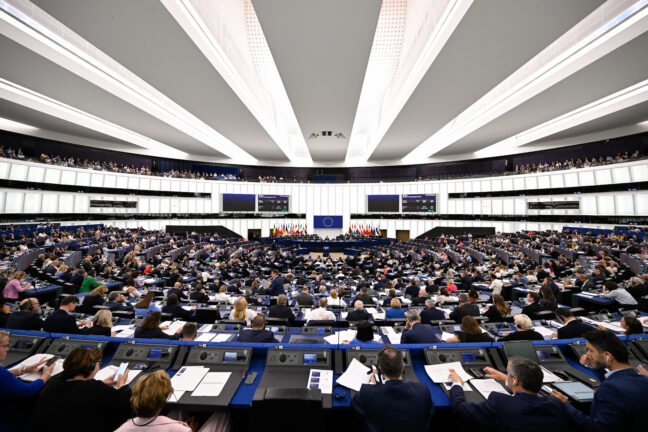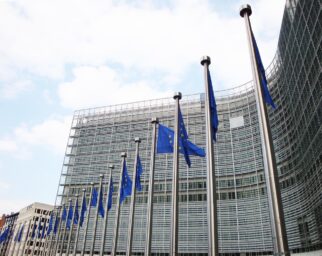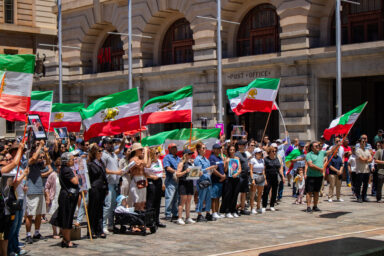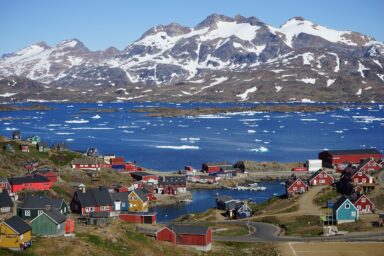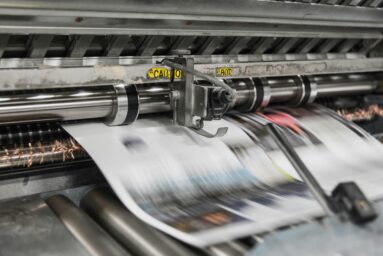The European Parliament refused to fast-track the European Commission’s 2040 climate targets on Wednesday, unleashing much fury among left-of-centre MEPs and, more generally, supporters of the Union’s green goals.
The Patriots of Europe group, which rejects EU policies to curb climate change, on Tuesday took on the role of lead negotiators for the 2040 climate target, seeking to steer talks on the goal, which the group said it firmly opposed. Lawmakers rebuffed a proposal on Wednesday to fast-track the negotiations, which would have skipped stages where the Patriots could exert most influence, and limited their ability to set the timings for negotiations, Reuters reports.
A coalition of Socialists (S&D), Liberals (Renew), and Greens had attempted to wrest control of the ambitious 2040 climate targets from the Patriots of Europe group. The motley crew of hardline conservatives, nationalists, illiberals and Putinists, however, is the Parliament’s third strongest faction. It used legitimate parliamentary procedure to assume rapporteurship for the controversially ambitious climate agenda.
Punitive and bureaucratic
Centrist parties sought an urgent procedure to curb the Patriots‘ influence. Their fast-tracking hopes rested on the support they though would come from the right-of-centre European People’s Party, the strongest parliamentary group. Their hopes were quashed as the EPP members, alongside the conservative ECR group, did not come to their rescue. Thus their request fell short: 379 MEPs rejected it, versus 300 in favour.
The Commission’s proposal, unveiled last week, seeks a 90 per cent cut in greenhouse-gas emissions by 2040 (versus 1990 levels). It allows the member states some flexibility. Yet its fate now rests with a rapporteur from a bloc sheltering France’s National Rally, Hungarian PM Viktor Orbán’s Fidesz, or Belgian Vlaams Belang.
You might be interested
We’re not abandoning our industrial base. – MEP Jordan Bardella
The PfE brands EU climate rules “punitive” and “bureaucratic”, a definition many EPP figures share—even as they have been, so far, loath to collaborate with the far-right overtly. The faction’s ascendancy marks a shift. Previously marginal on climate, the PfE now steers the 2040 talks. Chairman Jordan Bardella (PfE/FRA) declared the group “resolutely opposed” to the Commission’s plan. “We are not in favour of declining growth levels,” he told Politico. “We’re not abandoning our industrial base.”
Risk to leadership
The PfE secured the role through the system that allocates legislative files. The episode thus draws attention to the Parliament’s arcane “auction” system. Groups bid points—based on size—to lead files. The PfE’s aggressive tactics outflanked rivals. “They made such a high bid that other groups had no choice,” a source quoted by The Brussels Times noted.
The Commission’s proposal requires Parliament and Council approval. With November’s UN COP30 summit looming, delays could embarrass the EU. “If Europe doesn’t take climate seriously, why would others?” asked MEP Sarah Matthieu (Greens-EFA/BEL). As deadlock looms, like-minded members lamented lost momentum.
If Europe doesn’t take climate seriously, why would others? – MEP Sarah Matthieu
The EPP‘s inaction drew ire of its coalition partners. “They failed to outbid the far-right,” fumed centrists even before the EPP refused to limit the Patriots‘ influence by fast-tracking. The latter would have rendered the PfE rapporteur’s role „very limited“, MEP Pascal Canfin (Renew/FRA) said. “The rejection of the urgency procedure on the climate law does not give us the guarantee that Parliament will be able to vote before the COP in Belém. I regret this risk to European climate leadership, which has been imposed on us by the EPP,” he said in a Renew official statement.
EPP under pressure
The move tightens pressure on the EPP, which resisted endorsing the target. Faced with siding with Greens or far-right allies, the EPP, the group of European Commission President Ursula von der Leyen, chose the latter. Centrists seethed. “The EPP allowed the far-right to seize control,” said MEP Lena Schilling (Greens-EFA/AUT), citing the failed auction bid.
The EPP justified its stance by opposing haste. MEP Liesbeth Sommen (EPP/BEL) vowed to thwart PfE obstruction: “We will not work with them to weaken climate policy.” But critics lambasted the decision. MEP Bruno Tobback (S&D/BEL) accused the EPP of “handing over the climate target to the far-right”, calling it “incomprehensible and irresponsible”. Businesses await clarity for investments, he stressed.
The EPP allowed the far-right to seize control. – MEP Lena Schilling
For Europe’s climate agenda, the stakes are stark, as the targets demand unity. Yet the PfE’s rise—and EPP’s pragmatism—expose deepening fractures. The 2040 targets thus may, for better or worse, fall victim to Europe’s political flux.
